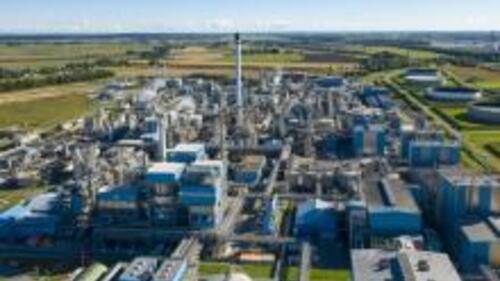
Sasol Chemicals, a business unit of Sasol Ltd., plans to double its use of green steam from a biomass cogeneration facility in Brunsbüttel, Germany. The company will lease land to Hamburger Energiewerke, which will build the facility by the end of 2024. Once operational in 2025, the plant will supply 70,000 megawatt hours of steam to Sasol annually, reducing its CO2 emissions by 13,000 metric tons per year. The facility will also produce 90,000 megawatt hours of sustainable electricity annually. This move is part of Sasol's goal to reduce its emissions by 30% by 2030.
BRUNSBÜTTEL – Sasol Chemicals, a business unit of Sasol Ltd. (JSE: SOL; NYSE: SSL), plans to double its use of green steam from a first of its kind biomass cogeneration facility adjacent to its Brunsbüttel, Germany facility.
Sasol Chemicals will lease land adjacent to its plant to Hamburger Energiewerke, Hamburg’s municipal utility, which plans to build the facility by the end of 2024. When fully operational in 2025, the plant will supply at least 70,000 megawatt hours of steam to Sasol each year, enabling the company to reduce its CO2 emissions from the plant by approximately 13,000 metric tons annually. In addition to green steam, the plant will produce more than 90,000 megawatt hours of sustainable electricity annually.
”This is another important step towards meeting our ambitious long-term sustainability objectives,” said Jens Straatmann, Senior Vice President, Eurasia Chemicals. "Increasing the use of green steam is a key enabler of further reducing our greenhouse gas emissions and will get us closer to our goal of reducing our scope 1 and scope 2 emissions by 30 percent by 2030.”
The facility will be the first large–scale power generation plant to operate almost exclusively with well-pressed or dried fermentation residues. That feedstock will be sourced from plants that are certified under Germany’s Renewable Energy Sources Act. The plant will benefit local agriculture because much of this material is surplus that is currently going to waste; now, it will become the heat source for the chemical building blocks of products used in personal care, cleaning and industrial applications.
Since 2014 the Brunsbüttel facility has used green steam from another nearby biomass facility. The two facilities combined will be able to supply half of the plant’s steam consumption.
Sasol’s Brunsbüttel facility, its largest in Germany, is located 80 kilometres (50 miles) northwest of Hamburg near the Kiel Canal and produces a broad range of organic and inorganic products. The site's organic products are used in a range of daily applications including detergents and cleaning agents, cosmetics, and pharmaceuticals, as well as in various technical applications. The site’s inorganic products are key components in catalysts, high-performance abrasives, and polymer additives.